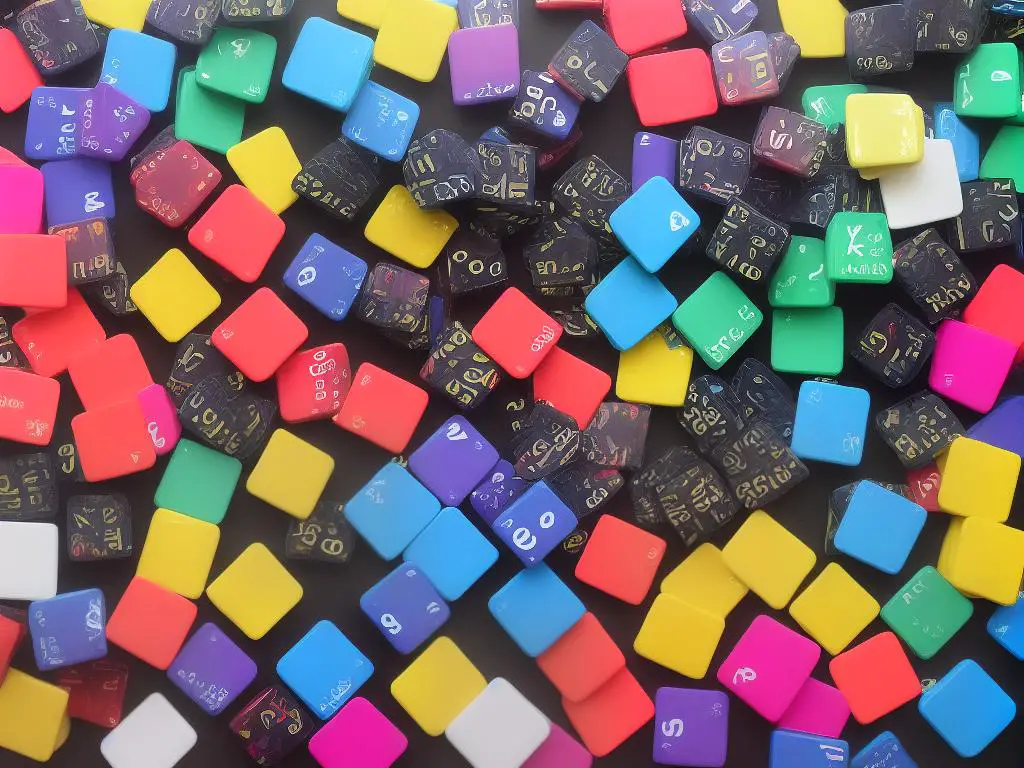Card-based board games have been captivating players around the globe for generations, offering an enticing combination of strategy, creativity, and fun. Whether you are exploring this fascinating world for the first time or seeking to extend your existing collection, understanding the types of card-based board games available and their unique features can help you make informed choices. This essay examines the essential elements that define card-based board games, discusses a selection of popular and exciting options, and provides valuable insights on selecting the perfect game to suit your preferences and the context in which you plan to play.
Understanding Card-Based Board Games
Card-based board games
Card-based board games are a unique and engaging subset of the larger board game genre, incorporating elements of both traditional card games and board games to create an immersive and strategic gaming experience. At their core, these games rely primarily on decks of cards to drive gameplay, strategy, and player interactions. Different from games that utilize cards as a supplemental component, card-based board games use the cards themselves as the central aspect of gameplay, often serving multiple functions, such as defining character abilities, determining available actions, or representing resources.
Inherent variability and uncertainty
One of the main features that sets card-based board games apart from other board games is the inherent variability and uncertainty that comes from using decks of cards. Players must adopt flexible strategies that account for the randomness of card draws and the changing game state. Additionally, these games often involve a considerable amount of decision-making, as players must weigh the benefits and risks of various actions available on their cards, manage their hands, and plan their moves according to the current board situation and the actions of their opponents.
Appealing aspects of card-based board games
Card-based board games offer a unique blend of strategy, adaptability, and thematic depth that sets them apart from other types of board games, making them a popular choice among gaming enthusiasts. One of the distinguishing features of these games is the potential for the game mechanics to be easily expanded or modified through the introduction of new cards. This allows designers and players to create endless variations and experiences, keeping the gameplay fresh and engaging. Well-known card-based board games, such as Dominion and Android: Netrunner, are recognized for their numerous expansions and continuous evolution, catering to players seeking a dynamic and long-lasting gaming experience.

Popular Card-Based Board Games
Dominion: A popular and strategic card-based board game
One card-based board game that has garnered immense interest among players worldwide is the strategic game of Dominion. Released in 2008, Dominion revolutionized the deck-building genre by introducing a unique gameplay mechanic where players begin with a small, weak deck of cards and progressively acquire better ones to create a more powerful deck. Set in medieval Europe, players assume the roles of monarchs and must build their kingdoms by obtaining valuable action, treasure, and victory points cards. As players expand their possession of cards and the game progresses, they must make critical decisions to balance and optimize their decks, racing to acquire the most victory points before the game comes to a close.
Another exciting and widely played card-based board game is the collaborative game of Pandemic.
In Pandemic, players assume the role of disease control specialists working together to prevent a global pandemic by reducing the spread of four deadly diseases across the globe. The game features a board that represents the world map, with select major cities as possible sites for disease outbreaks. Players draw cards from a shared deck, and the card’s color determines which city a player can treat or travel to on their turn. The critical thinking and teamwork required in Pandemic are crucial for players to skillfully coordinate their actions and utilize their unique roles to achieve victory.
Exploring Card-Based Board Games: Magic: The Gathering
Card-based board games offer a unique blend of strategy, critical thinking, and entertainment, with Magic: The Gathering being an excellent example. Since its launch in 1993, Magic has amassed a dedicated following and boasts a vibrant international competitive scene. In the game, players build a unique deck consisting of magical spells, creatures, and artifacts, starting with limited resources known as “mana.” The objective is to summon creatures, cast powerful spells, and tactically engage in combat by adapting their playstyle based on their opponent’s actions and card choices. As a result, Magic is an exhilarating concoction of strategic planning, adaptation, and unpredictability.

Choosing the Right Card-Based Board Game
Selecting the Right Card-Based Board Game
When choosing a card-based board game such as Magic: The Gathering, it’s crucial to consider a variety of factors to ensure a perfect fit for your situation. Elements like the age and interests of the players, the game’s complexity, and the amount of time available for play can all influence your decision. Whether it’s for family game nights, friendly gatherings, or competitive environments, taking these factors into account will help you select the ideal card-based board game, guaranteeing an enjoyable experience for everyone involved.
Game Themes and Objectives
Gather information on the players’ age, skills, and gaming preferences. For family game nights, try to find a game that is easy to learn yet engaging for all ages, such as Uno or Apples to Apples. For friendly gatherings with adult players, you might want to look for games with more strategic elements or engaging themes, like 7 Wonders or Dominion. In competitive environments, consider games with a focus on strategy or bluffing, such as Magic: The Gathering or Poker, to create a challenging and exciting atmosphere.
Time and Complexity
The complexity of a game and the time it takes to play are key factors to consider when selecting a card-based board game. For casual settings, it’s important to choose a game that can be quickly explained and does not have too many rules. Games like Sushi Go!, Love Letter, or Exploding Kittens are excellent options as they have straightforward rules and can be played in under 30 minutes. On the other hand, for more serious and competitive gaming sessions, you might opt for games that require strategic thinking and longer playthroughs, such as Netrunner or Arkham Horror: The Card Game. By carefully considering factors like age, skill level, and time investment, you can ensure that you choose a card-based board game that suits the preferences of your group and creates a fun, engaging experience for all.

Ultimately, the world of card-based board games is as diverse as it is engaging, offering endless possibilities for players to immerse themselves in fantastical realms, strategic battles, and delightful moments of camaraderie. By considering the factors outlined in this essay, you can confidently approach your journey into this fascinating domain, discovering games that best meet your interests and the experience you seek to provide for friends and family. The joy of card-based board games is in their ability to adapt to your needs and preferences, providing endless hours of entertainment and shared memories that will last a lifetime.
